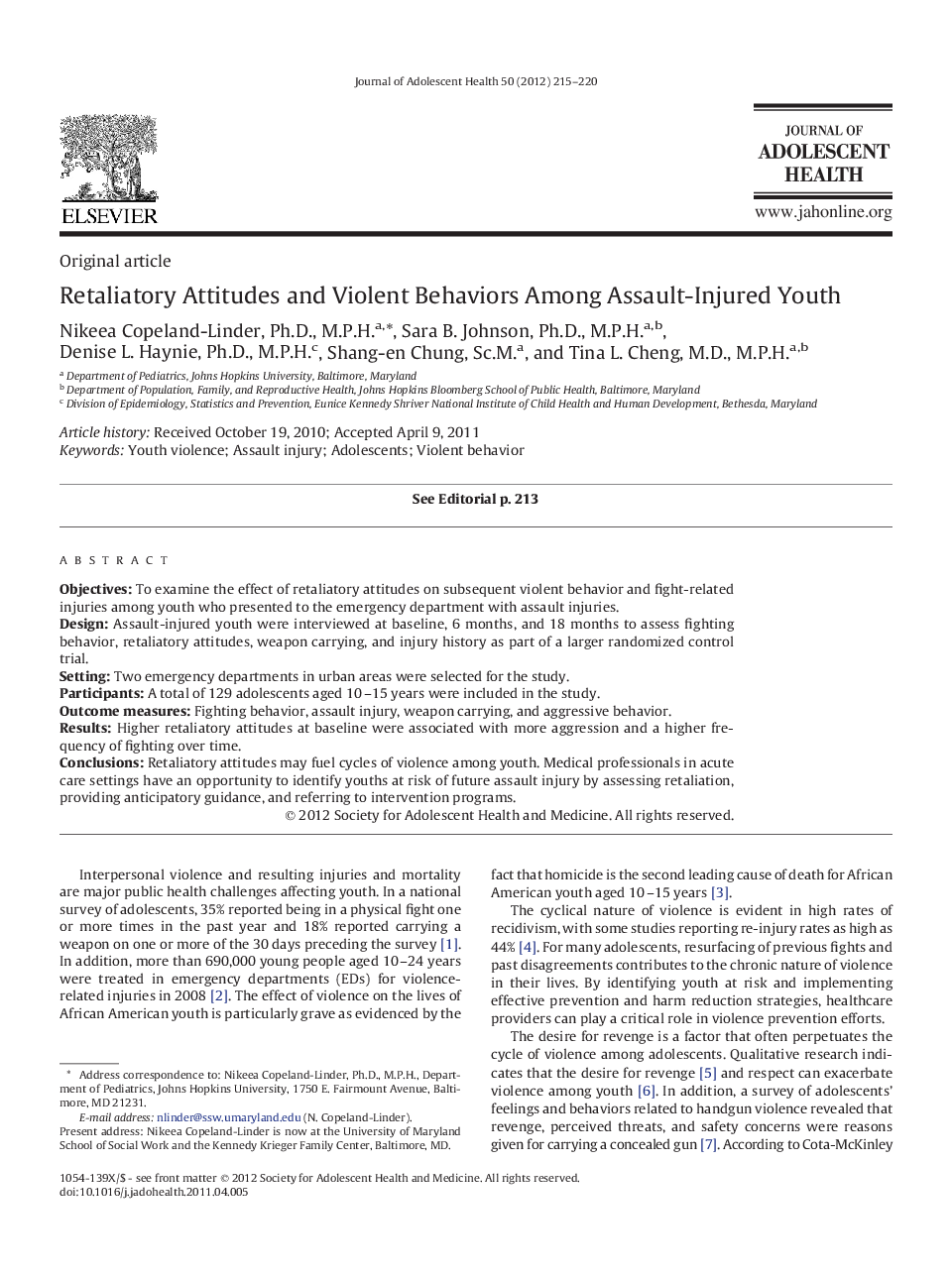| Article ID | Journal | Published Year | Pages | File Type |
|---|---|---|---|---|
| 1081136 | Journal of Adolescent Health | 2012 | 6 Pages |
ObjectivesTo examine the effect of retaliatory attitudes on subsequent violent behavior and fight-related injuries among youth who presented to the emergency department with assault injuries.DesignAssault-injured youth were interviewed at baseline, 6 months, and 18 months to assess fighting behavior, retaliatory attitudes, weapon carrying, and injury history as part of a larger randomized control trial.SettingTwo emergency departments in urban areas were selected for the study.ParticipantsA total of 129 adolescents aged 10–15 years were included in the study.Outcome measuresFighting behavior, assault injury, weapon carrying, and aggressive behavior.ResultsHigher retaliatory attitudes at baseline were associated with more aggression and a higher frequency of fighting over time.ConclusionsRetaliatory attitudes may fuel cycles of violence among youth. Medical professionals in acute care settings have an opportunity to identify youths at risk of future assault injury by assessing retaliation, providing anticipatory guidance, and referring to intervention programs.
